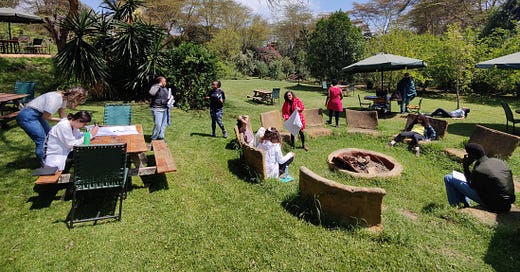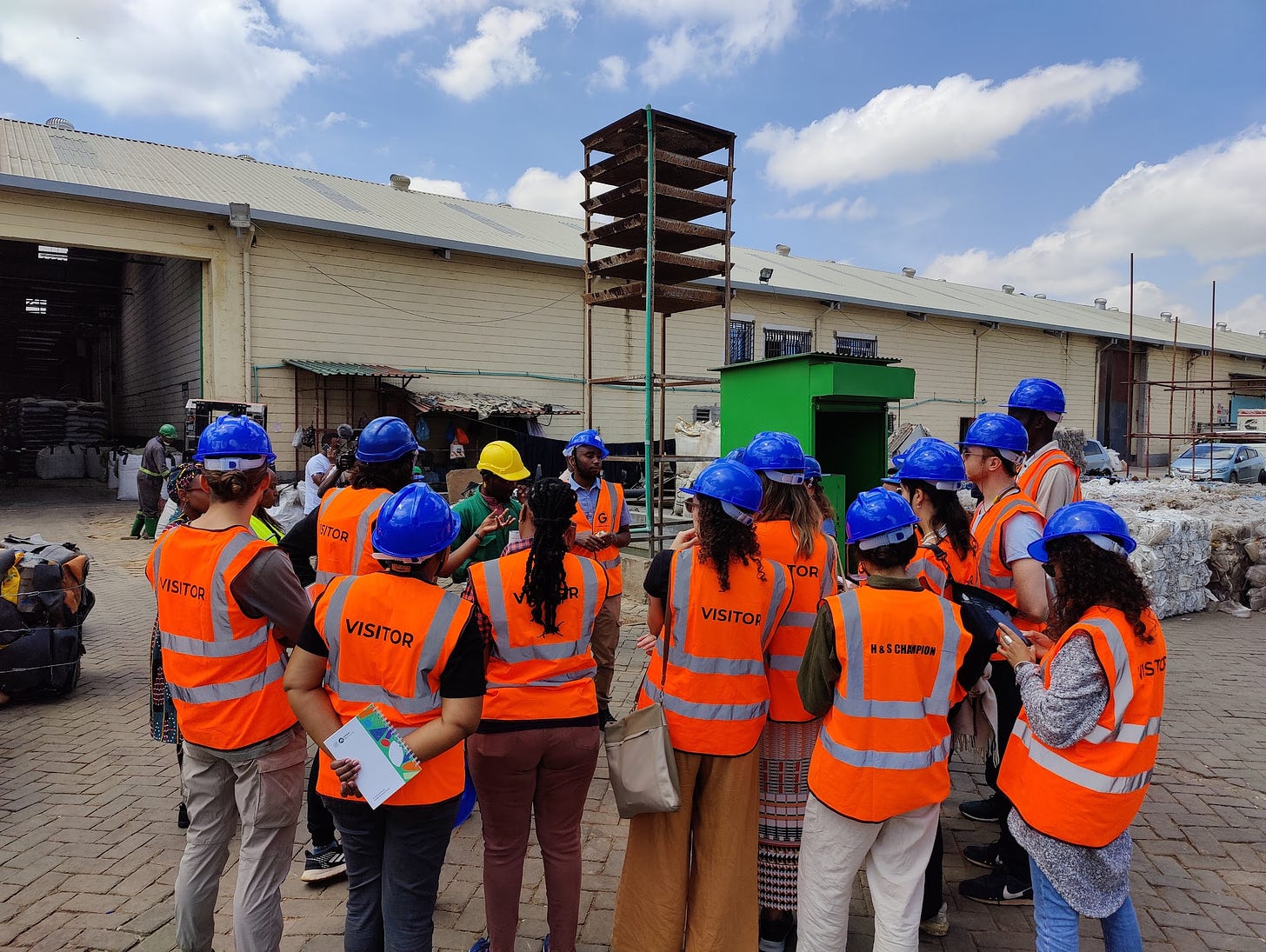Estimated reading time: 5 minutes 42 secondsI started this newsletter in October 2020, with the intention of publishing it weekly. Four months later, I lost the motivation to research and write about new skills, and other areas of life took precedence.
Yet, my passion to write about learning remained. I recently checked my substack stats and saw that my last post was in June 2021. Since then, I have had a task in my diary every month to restart the newsletter, rethink the strategy, and write a new issue. Unfortunately, all attempts have been in vain.
In the spirit of the new year, I set a less ambitious goal: to publish 12 posts in total. It doesn't matter if it’s one per month or four; if I publish 12, I'll be happy.
But what should I write about? There are so many options. I want to cover new skills to learn, courses to take, research on learning theories, exciting ed-tech tools, and the investment scene in education. I also want to share my personal learning experiences.
My choice? I'll play it by ear. I'll pick a topic that I personally enjoy writing about, not one which gets me the most subscribers.
💡 Why write at all?
I'll spare you the sermon about why writing is amazing and why you should do it too. I write because it has been beneficial to me. It has enabled me to connect with new people, sharpen my thinking, receive job prospects from HR who stumbled on my blogs, and even secure the job I'm currently doing. So, I write for purely selfish reasons.
“I sometimes wonder how all those who do not write, compose, or paint can manage to escape the madness, the melancholia, the panic fear which is inherent in the human situation.”
Graham Greene
🤖 Why should you listen to me?
I'm not an expert in education, but I do build online courses for a living.
I'm a proponent of self-directed learning and I also appreciate well-structured online and in-person courses. My experiences in both have shaped my learning philosophies, which are always evolving.
If you like to learn new and interesting things, or work in the education sector, or are just curious to take control of your own learning, you may find some value in my words.
📋 Let’s dive in
Now that I've caught up on the silence that had been brewing over the last couple of years, I'd like to talk about a transformative learning experience I had.
Until May 2020, I was a strong advocate for self-directed learning. I believe that we can learn anything we want from the internet for free. Paying for a course that costs between $50 and $200 is fine, but I didn't see the value in spending thousands of dollars on a course that I can learn from YouTube.
I graduated from university in 2018 and since then, I have taken plenty of self-paced online courses, mostly for free.
Though despite my enthusiasm for learning online, many of them are still unfinished and I couldn’t figure out whether it was me or the course that sucked.
The only paid, structured live online course I had taken was a two-month yoga teacher training, with four hours of classes daily. It was intense, but I loved it and learned a lot.
📎 Enter structured learning
To challenge my assumptions and try classroom learning again, I signed up for a six-month course in social innovation management at Amani Institute. The course was split into three months of online learning and three months of in-person learning in Kenya. A great opportunity to gain new skills while also experiencing a different culture.
No, I did not decide to move to Kenya on a whim. I had been eyeing this course since 2019, but I didn't enroll even after I was accepted because I didn't want to pay the $5,000 in fees. I thought I could just look at the curriculum and create one for myself using free resources. I made some progress, but my dedication didn't last long when other things in life took over, as usual.
So, in 2022 I finally signed up for the program and completed it last month in Kenya.
In Kenya, I worked remotely full-time for 4 days a week with a mostly Australian team. Had classes from 9 AM - to 6 PM on Fridays and Saturdays. Sundays were spent exploring Nairobi or catching up on work, life and assignments.
It was life in High Gear. It reminded me of my high school and university days. And I loved it.
I will write more posts about specific subjects in the program, but I believe structured learning, despite its cost, worked for me.
I enjoyed this course personally because:
Set timelines - I can’t procrastinate
A diverse cohort of people to study with
Instructors you can interact with instead of watching recorded lectures
Instructors are more practitioners than academics and act like a coach
Well-structured content and reading material
No graded tests - we applied what we learned on our own projects
Ability to discuss doubts and questions with fellow students in real life instead of chat apps
Lots of non-study group activities - great online but also 100 times better in person
Lots of outdoor learning - classes in nature
Fortnightly catchups with your course coach
A 3-month apprenticeship (optional)
Two amazing field trips in Kenya
Serendipitous conversations over coffee and lunch breaks
Debate and disturb the instructor anytime and then go out for drinks with them after the class
It was refreshing to be a student again. To sit in a classroom with teachers who were open to our feedback on what we wanted to get out of a particular session.
Sadly, not all courses are built alike. This was a unique program run by a social enterprise for a cohort of 16 students. Big universities cannot offer this level of customization.
I wish I can find more courses like this. This experience motivated me to explore more community and cohort-led structured programs.
I have realized that having a full-time job can take up so much of our mental and physical energy, and after accounting for our personal commitments, we often have very little left to self-direct our learning.
So when you start learning a new skill this year, maybe find a structured cohort-based course. The extra cost is worth it than learning on Udemy or youtube. If you’re curious, check out entrylevel.net (yes, I work here) to get started.
To kick off this year, I'm going to balance it out by signing up for a 4-week cohort-based habit-building course and a course on project management on Coursera.
What new skills are you learning this year?
🔖 What’s next?
The theme of this newsletter will change. I will no longer be writing about new skills to learn. In future essays, you can expect more personal learning reflections, a list of super cool courses that you could take online, and my thoughts on learning theories and the growing ed-tech scene.
If you have any feedback or comments, I’d love to hear from you, just reply to this email.






